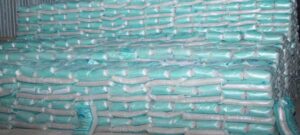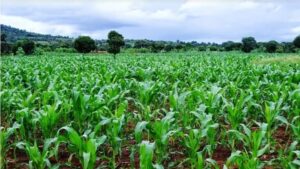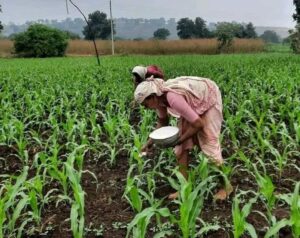Opinion Article

By Adamu Muhammad Chigari, Kashere
Gombe State, despite its agricultural potentials, faces significant challenges in the sector, as highlighted by a recent report from Daily Trust.
The state was ranked among the top ten with the highest food inflation rates as of June 2024. This alarming statistic underscores the urgent need for re-evaluation of the state’s agricultural policies and practices.

The state government has repeatedly emphasized its commitments to supporting farmers through various initiatives, notably the sale of fertilizers at a 50 percent discount. However, the reality on the ground tells a different story. The state’s purported efforts are undermined by a range of issues that are impeding progress in agricultural production.
One major concern is the distribution of fertilizers. The state’s approach has been criticized for prioritizing political loyalists over actual farmers. Fertilizer, which is essential for boosting crop yields, is often distributed to ten loyalists from each polling unit, many of whom do not engage in farming. This practice not only deprives genuine farmers of crucial resources but also undermines the effectiveness of agricultural support programs.

Moreover, the quality of the fertilizers provided by the government has been a point of contention. Farmers report that these fertilizers are inferior to those available in the market, despite claims of discounts. The disparity in quality further exacerbates the difficulties faced by farmers, who are already struggling with rising food prices and inflation.
In contrast, the Governor of Niger State has demonstrated a more proactive approach to supporting agriculture. By investing heavily in both dry and rainy season farming, the Niger State government has significantly enhanced agricultural productivity. In a notable move, the governor provided 1,000 trucks of grains to each of the 25 local government areas in the state. These grains, cultivated during the dry season, have helped mitigate the impact of food shortages and provide relief to communities.

Gombe State Government is urged to take inspiration from this model and implement similar measures to revitalize the state’s agricultural sector. By focusing on genuine support for farmers, ensuring the quality of agricultural inputs, and adopting a more transparent and inclusive distribution system, Gombe State can better address its food inflation crisis and improve the livelihoods of its agricultural community.
The time has come for Gombe State to prioritize meaningful investments in agriculture, moving beyond more promises and taking concrete actions to support its farmers. Only through such reforms can the state hope to overcome its current challenges and achieve sustainable agricultural growth.
Chigari is a 300 level student
Department of Mass Communication
Federal University of Kashere, Gombe State
chigarikumo@gmail.com

